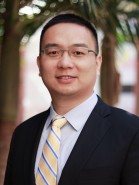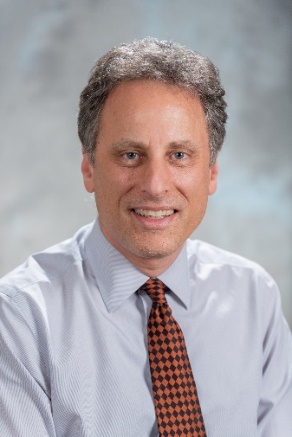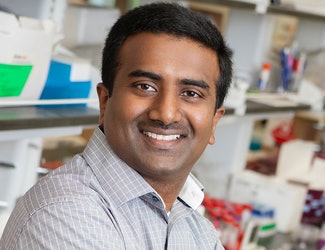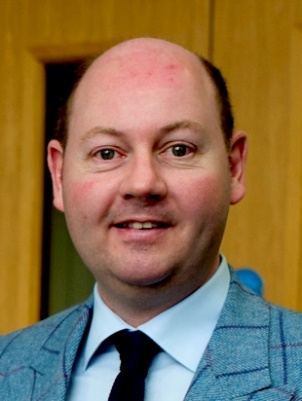Translational Research of Microneedles
26 June 2022, Sunday
14:00-16:00 (London); 9:00-11:00 (New York); 21:00-23:00 (Beijing)
Zooming info:
Meeting ID: 826 657 0519
Passcode: 718288
Join by SIP: 8266570519@zoomcrc.com
Join by H.323: 162.255.37.11 (US West)
Opening Remarks and Introduction (3 min)
Prof. Qian Wang
University of South Carolina, USA
Lecture 1 (20 min, 15 + 5 Q&A)
Bioresponsive microneedle patches

Prof. Zhen Gu
Zhejiang University, China
Lecture 2 (20 min, 15 + 5 Q&A)
Translation of microneedle technology for vaccination, contraception and dermatology

Prof. Mark Prausnitz
Georgia Institute of Technology, USA
Lecture 3 (20 min, 15 + 5 Q&A)
Microneedle-based minimally-invasive biodiagnostics

Prof. Srikanth Singamaneni
Washington University, USA
Lecture 4 (20 min, 15 + 5 Q&A)
Microneedles – which ones work and what to use them for
Prof. Owen Guy
Swansea University, UK
Organizing Committee (Alphabetically):
Prof. Xu Cao
Department of Orthopaedics, Johns Hopkins University, USA
Prof. Xiaodong Guo
Department of Orthopaedics, Wuhan Union Hospital, China
Prof. Bin Li
Institute of Orthopaedics, Soochow University, China
Prof. Zengwu Shao
Department of Orthopaedics, Wuhan Union Hospital, China
Prof. Qian Wang
University of South Carolina, USA
Dr. Zhidao Xia
Swansea University Medical School, Swansea, UK
Prof. Weihua Xu
Department of Orthopaedics, Wuhan Union Hospital, China
Brief CV of Prof. Zhen Gu
Prof. Zhen Gu, Qiushi Distinguished Chair Professor of Zhejiang University, Dean of College of Pharmaceutical Sciences, "Changjiang Scholar" of Ministry of Education. He received his B.S. degree in Chemistry and M.S. degree in Polymer Chemistry and Physics from Nanjing University. In 2010, he obtained Ph.D. from the Department of Chemical and Biomolecular Engineering at the University of California, Los Angeles (UCLA). He was a Postdoctoral Associate working with Dr. Robert Langer at MIT and Harvard Medical School. Before he moved to Zhejiang University in 2020, he was a Full Professor in the Department of Bioengineering and Director of the NIH Biotechnology Training in Biomedical Sciences and Engineering Program at UCLA. He has received the Sloan Research Award, CRS Young Scholar Award, and ADA Pathway Research Award. He was elected a fellow of the American Academy of Medicine and Bioengineering in 2019 and a fellow of the International Academy of Medicine and Bioengineering in 2021. His research group reported for the first time the prototype of "Smart Insulin Patch" in response to blood glucose, proposed a new concept of closed-circuit transdermal delivery system, and pioneered the invention of platelet-coupled drugs by taking advantage of platelet-targeting, and related technologies are being transformed in clinic. He has published over 250 research papers and applied over 150 patents.
Brief CV of Prof. Mark Prausnitz
Prof. Mark Prausnitz, Regents’ Professor and J. Erskine Love, Jr. Chair in Chemical & Biomolecular Engineering at the Georgia Institute of Technology. He earned a BS degree from Stanford University and PhD degree from MIT, both in chemical engineering. He and colleagues carry out research on biophysical methods of drug delivery using microneedles, lasers, ionic liquids and other microdevices. Their research focuses on transdermal, ocular and intracellular delivery of drugs and vaccines. He teaches an introductory course on engineering calculations, as well as two advanced courses on pharmaceuticals. He has published more than 300 journal articles and has co-founded seven start-up companies including Micron Biomedical and Clearside Biomedical.
Brief CV of Prof. Srikanth Singamaneni
Prof. Srikanth Singamaneni, the Lilyan & E. Lisle Hughes Professor in the Department of Mechanical Engineering and Materials Science at Washington University in St. Louis, obtained his PhD in Polymer Materials Science and Engineering from Georgia Institute of Technology in 2009. His research group is involved in the design, synthesis and self-assembly of plasmonic nanostructures for various biomedical applications. He has co-authored more than 170 refereed articles (including 11 invited reviews) in archival journals, 9 book chapters, and a book (Scanning Probe Microscopy of Soft Matter: Fundamentals and Practices). He is a recipient of the NSF CAREER award, Dean’s Faculty Award for Innovation in Research, Translational New Investigator Award, DOD-Army and Materials Research Society Graduate Student GOLD Award.
Brief CV of Prof. Owen Guy
Prof. Owen Guy, the Head of Chemistry at Swansea and Director of the Centre for Nanohealth in the College of Engineering at Swansea University, is formerly Head of the Systems Process & Engineering Centre (SPEC) one of 3 research centres within Swansea’s College of Engineering. His research background in SiC later led him become the world’s first epitaxial graphene biosensors in 2010 for detection of a cancer risk marker. He is also pioneering integration of biosensor chips and developed silicon microneedle (MN) and microfluidics technology through EPSRC. This work is particularly related to blood and blood clotting diseases. He supervised more than 30 PhD and MSc students. He has published over 70 papers, holds 2 patents (WO2011004136 and P100072GB), and was one of six candidates shortlisted for the Royal Academy of Engineering 2009 young entrepreneur award. He is also a Fellow of the Royal Society of Chemistry and makes regular contributions to the media in relation to Nanotechnology applied to the Healthcare. Most recently, he has attracted £21 M of industry funding to support a new £90M Semiconductor Centre at Swansea.



